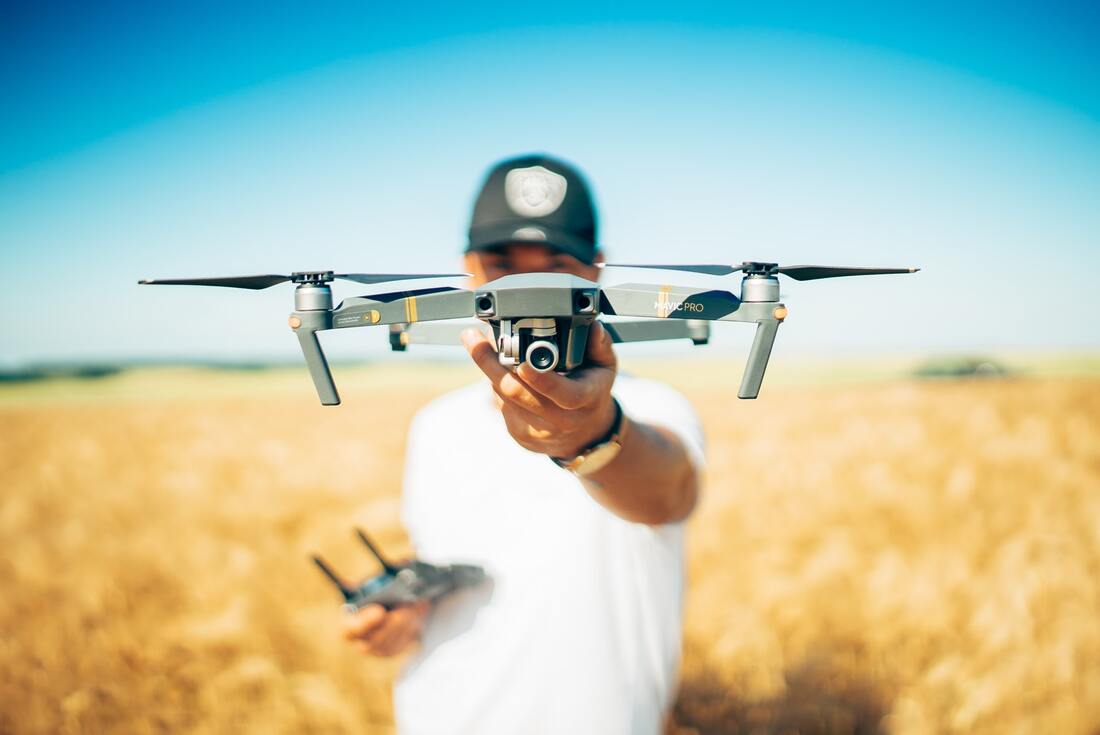|
Drones used for business purposes are tax deductible. The deduction is not allowed until the drone is placed in service which typically requires a drone business to have customer revenue and the drone pilot to have a FAA commercial part 107 license. A nondrone business that uses drones can also deduct drone expenses that are business related.
Drone IRS Depreciation Drones under $2,500 for small businesses and $5,000 for businesses with audits can be expensed. For larger capital expenditures a business can use a one time section 179 deduction or bonus depreciation to write off the drone. Alternatively capital drone expenses can be capitalized and depreciated as computer equipment over an IRS accelerated period of 5 years or over an industry class life that is typically 5 years for professional service businesses. Drone Startup Costs Startup costs for drone businesses like training and test preparation are deductible when business starts generally when customer revenue begins. These startup expenses under $5,000 can be written off immediately. For amounts over $5,000 a 180 month amortization period is required. Lifetime learning tax credits are an alternative for classes at qualified education organizations. This credit is 20% of cost of education limited to $10,000 per year and to taxpayers of low or middle income. This credit does not carry over and is non refundable. Avoiding IRS Hobby Status Preventing your drone business from being classified as a hobby allows you to deduct expenses directly from drone customer service revenue. Running a drone hobby as a drone business could very possibly trigger an IRS audit. If your drone business is legitimate and not a hobby, keeping accurate and extensive records could help prevent the classification of your business as a hobby. In addition to demonstrating your professional approach to your business, records and receipts can help document your profit motive. A written business plan is often a prerequisite for indicating an intent for profit, and it can also show ways in which you are modifying your business to cope with losses. FAA Business License Before performing drone flight services for your drone business, you must take and pass the FAA Part 107 exam. Without a FAA Part 107 certification, you cannot legally fly a drone for any business purpose. Here are the steps to getting your FAA Part 107 certification:
IRS Tax Filing Status and LLC Status for Income Tax Purposes Most drone pilot businesses are going to start as part time or be solo businesses so they will most likely be reported on Schedule C profit or loss from business of a sole proprietor. This schedule C is included with your personal 1040 tax filing annually so no additional separate filing is required. If a limited liability company (LLC) is created legally the drone business will still most likely file on a schedule C as a sole proprietor because the LLC is disregarded for tax purposes and no extra filing is required. On the schedule C you can list the LLC employer identification number (EIN) and business LLC name. Randy Tarpey CPA works year round at Sickler Tarpey & Associates in Tyrone Pa and is available to answer your drone tax questions. Let me know how I can help you or improve the information on this website. Contact us via the contact page on this website or [email protected]. Disclaimer: This article is intended for informational purposes only. Nothing contained on this website is tax or legal advice. You should seek legal counsel before acting upon information on this website.
4 Comments
10/28/2022 09:43:03 am
Hello,
Reply
10/31/2022 09:55:14 am
James,
Reply
Broderick Whitlock
3/7/2023 07:46:43 am
Do I have to have my FAA license before purchasing for tax purposes?
Reply
Leave a Reply. |
AuthorRandy Tarpey Archives
November 2022
Categories |

 RSS Feed
RSS Feed
